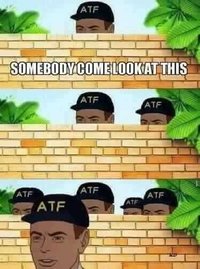The Goose
NES Member
One of the most common questions I see regarding reloading and casting is how much can I save. Is it really worth it. The other night I went to a friends house for dinner and it came up in an odd way. My friend is an accountant and not a shooter. We were discussing retirement and he asked me how I would spend my time when I retire (very soon). I said that for one thing I would spend a lot more time shooting and he asked me how nuch that costs. I could not really answer him. So he said if you go tio the range for a typical shooting session what would it cost. I still could not really answer him and he found that baffling. He likes to assign numbers and values to everything. Later on I kept thinking about his question and particularly how it pertained to retirement. So pardon me if I wax philosophical.
Without consciously doing so I have spent a good portion of my adult shooting life preparing for retirement. I have accumulated components, tools and knowledge. I have a shed full of lead alloy. Wheel weights, flashing, range lead, pipes, etc. I have invested in good quality molds, furnaces, smelting equipment and so on. Reloading equioment, presses, dies, sizers. Components, brass, primers, powder. Hand tools of all sorts, a lathe, drill press, grinder and more. This hobby made it possible for me to shoot rare, old calibers at a reasonable cost. Instead of just pumping money into more ammo to blow through at the range I sought sustainability. When ammo supplies and components were scarce it never affected me. I kept my costs down on my regulat shooting activities while simultaneously tooling up for the future. I was in no hurry so I watched for deals and snapped up good bargains even if I did not need them right then.
So when I am asked about cost I still cannot answer that question. What I do know is that as I look forward and see the day coming when my disposable income will be reduced I take comfort. There is a cost associated with our hobby, it is not cheap. But it can be made manageable. My opinion is that the cost savings to pusuing reloading and casting is huge and not always immediately apparent. Although one can start the process at any time I will say that the younger and sooner the better. Invest in good quality equipment that will last and begin hording components. It will stand you in good stead in days to come. Whether as a hedge against leaner days to come or unforeseen legislaton that could effect availability it just makes sense. Just my .02.
Without consciously doing so I have spent a good portion of my adult shooting life preparing for retirement. I have accumulated components, tools and knowledge. I have a shed full of lead alloy. Wheel weights, flashing, range lead, pipes, etc. I have invested in good quality molds, furnaces, smelting equipment and so on. Reloading equioment, presses, dies, sizers. Components, brass, primers, powder. Hand tools of all sorts, a lathe, drill press, grinder and more. This hobby made it possible for me to shoot rare, old calibers at a reasonable cost. Instead of just pumping money into more ammo to blow through at the range I sought sustainability. When ammo supplies and components were scarce it never affected me. I kept my costs down on my regulat shooting activities while simultaneously tooling up for the future. I was in no hurry so I watched for deals and snapped up good bargains even if I did not need them right then.
So when I am asked about cost I still cannot answer that question. What I do know is that as I look forward and see the day coming when my disposable income will be reduced I take comfort. There is a cost associated with our hobby, it is not cheap. But it can be made manageable. My opinion is that the cost savings to pusuing reloading and casting is huge and not always immediately apparent. Although one can start the process at any time I will say that the younger and sooner the better. Invest in good quality equipment that will last and begin hording components. It will stand you in good stead in days to come. Whether as a hedge against leaner days to come or unforeseen legislaton that could effect availability it just makes sense. Just my .02.

